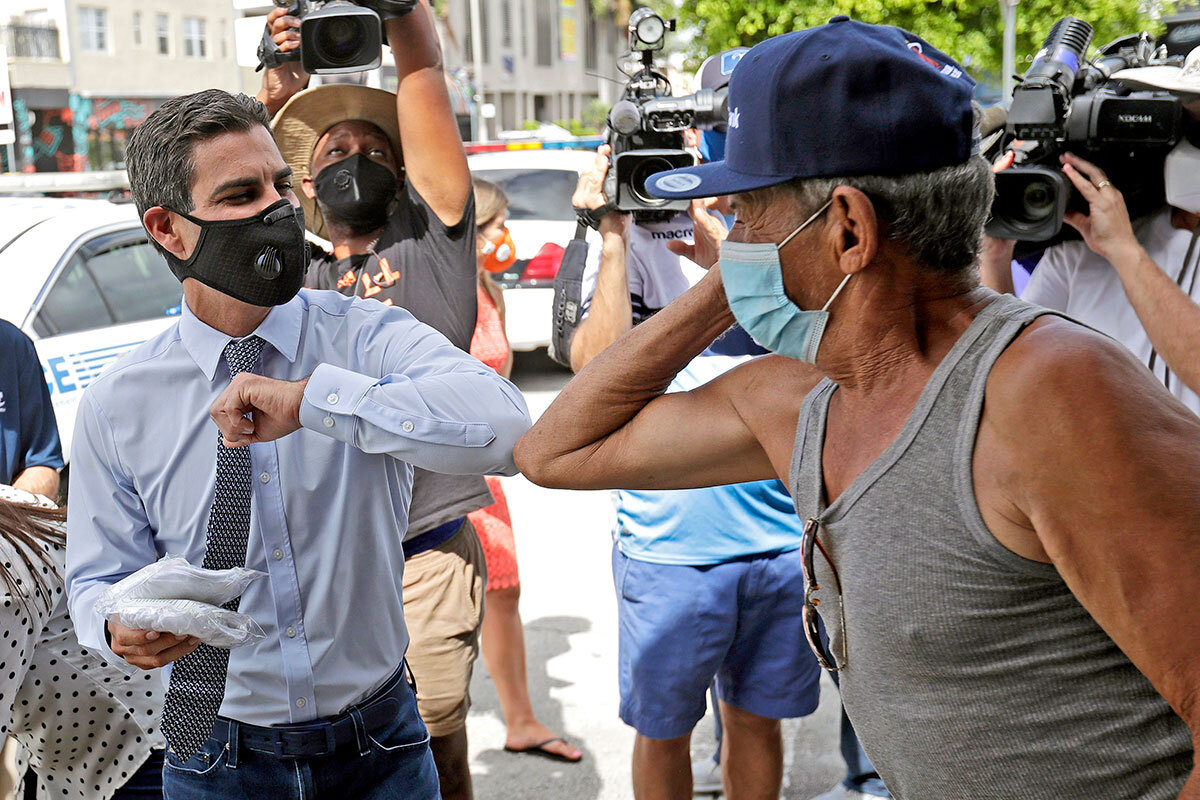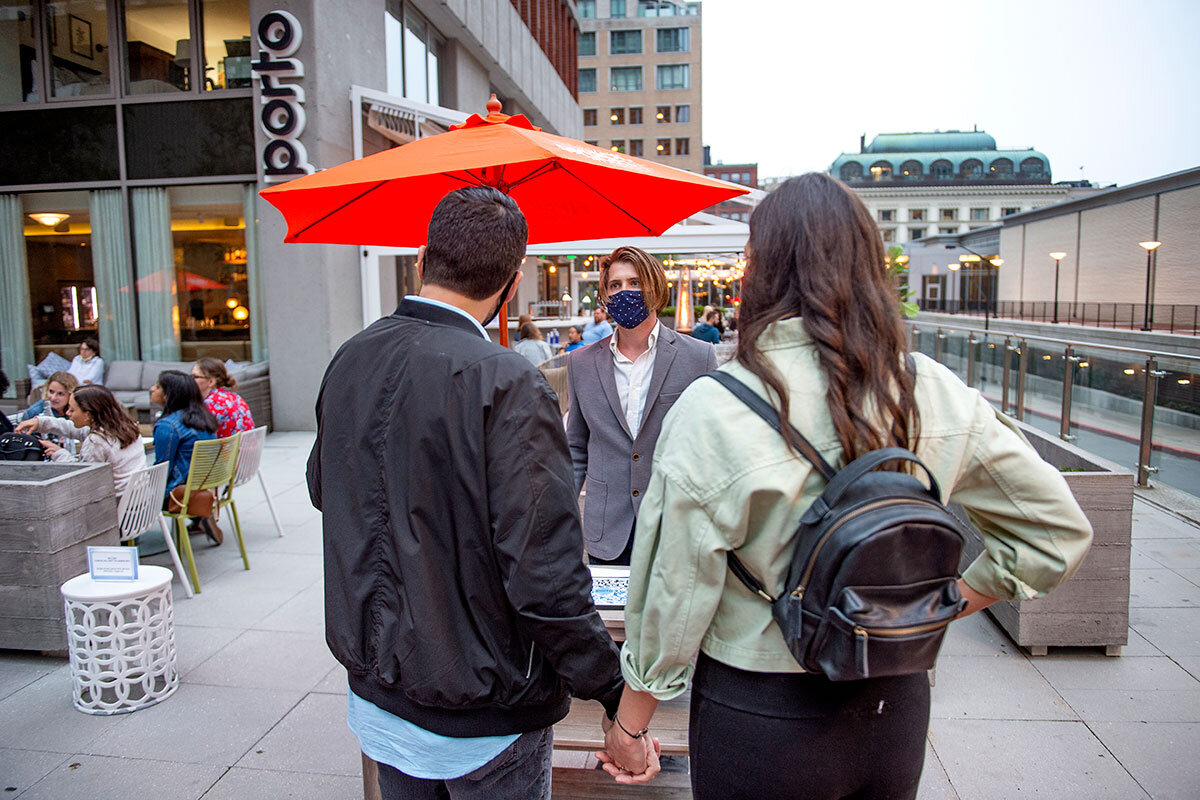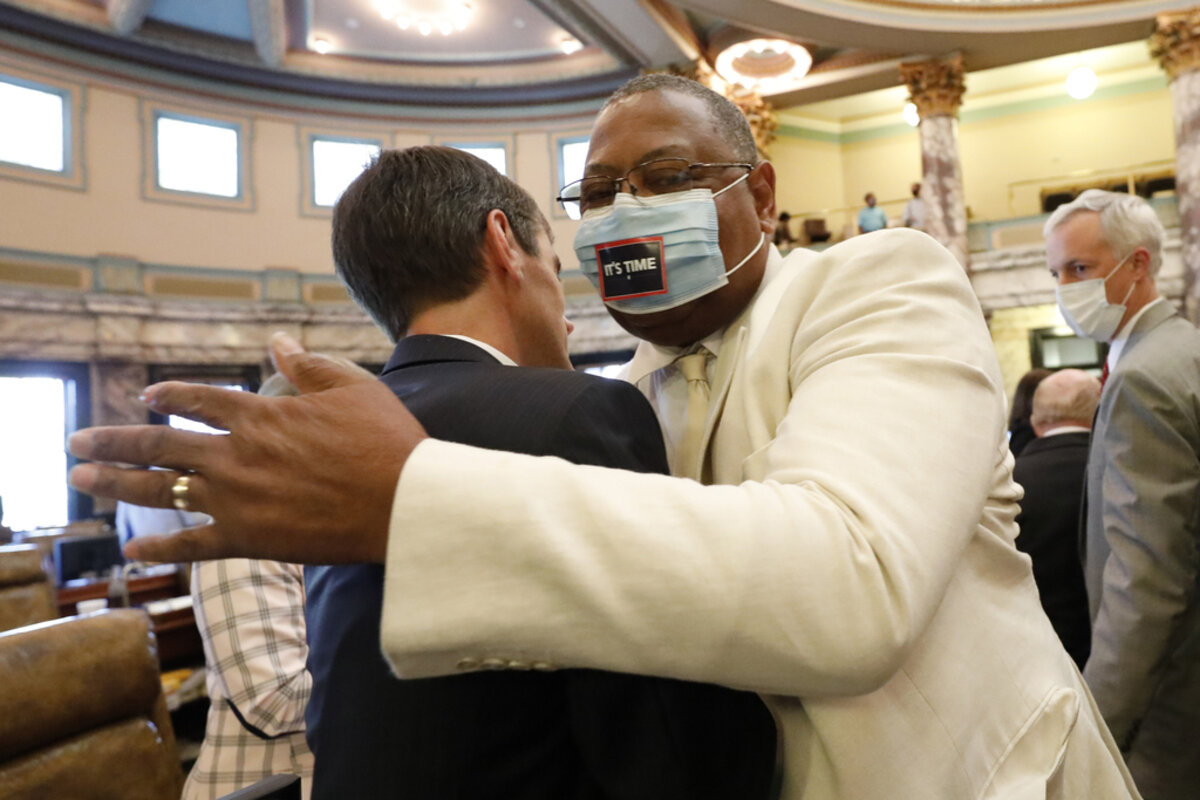Americans have seen divisions deepen over handling the pandemic. Now, as cases surge, they’re finding personal beliefs and regional values pitted against what experts say is a growing imperative to take responsibility for one another.
Monitor Daily Podcast
- Follow us:
- Apple Podcasts
- Spotify
- RSS Feed
- Download
 Amelia Newcomb
Amelia Newcomb
Writing effectively on a tight deadline can test the most seasoned of journalists. Doing so with a sense of humanity and place is particularly demanding. So we are pleased to report that the Monitor’s Africa bureau chief, Ryan Lenora Brown, has been awarded a 2019 Sigma Delta Chi Award for deadline reporting by the Society of Professional Journalists.
The story involved a legal challenge to a colonial-era law in Botswana that criminalized gay sex. Ryan was interested in how a small country in Africa might play a large role in a global trend of such challenges.
So on June 11, 2019, Ryan was in the courtroom in Gaborone, Botswana, to hear the ruling. She was the only foreign journalist present. She had talked the night before to the plaintiff, Letsweletse Motshidiemang, and discovered she was the only foreign journalist to contact him about his experiences growing up and his motivation for action – details that challenged some of her assumptions. After the ruling, he talked with her again, this time through tears of joy.
Ryan says coverage of the history-making case had offered little beyond basic facts. “I wanted to center it on his perspective, regardless of the outcome. That made it a story that came out on deadline but had the richness of his words,” she says. It speaks to the importance of going to places that don’t generate international headlines, she adds: “To be there and experience it made all the difference in what I was able to tell.”











